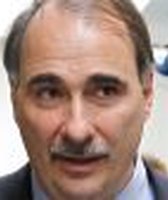Get PolitiFact in your inbox.

Changes to believe in: Obama promised more than 500 of them.
Barack Obama made 510 promises when he was running for president, a list that is stunning in its scope and leaves almost no part of the executive branch untouched, according to a new analysis by PolitiFact.
The analysis found that Obama made more than twice as many promises as George W. Bush and Bill Clinton, whose campaign pledges were examined by other news organizations. Bush made 177 promises in 2000 and Clinton made 204 in 1992, as reported by the Knight Ridder Washington Bureau (now McClatchy).
Obama made sweeping promises like ending the Iraq war and cutting taxes on the middle class, and narrow ones like establishing programs to help animals survive global warming, weatherizing 1 million low-income homes per year and increasing tax deductions for artists.
The promises reflect a philosophy that government can, and perhaps should, play a role in solving problems at all levels.
"I would describe him as an activist realist," said Bill Galston, a former policy adviser to President Bill Clinton and a senior fellow for governance study at the nonpartisan Brookings Institution. "On the one hand, he does not share the reflexive antigovernment position that has dominated the last 30 years of American politics."
On the other hand, Galston said, it would not be fair to call Obama a "gung-ho intervener or spender." Obama is grounded by a sense of what is economically and politically feasible, he said.
PolitiFact, the St. Petersburg Times fact-checking site, compiled the 510 by examining Obama's campaign Web site, position papers, interviews and speeches. PolitiFact staffers will be tracking each one on the Web site's Obameter, which will show whether they are In the Works or Stalled, and will ultimately indicate whether the promise was Kept or Broken. The ratings will be tallied on a chart on PolitiFact's home page that will show the overall progress of the Obama presidency.
Among PolitiFact's findings:
• Obama calls for more regulation, new agencies and at least 11 new groups that would have "corps" in their name, including: an America's Voice Corps to foster international diplomacy; an Artists Corps to work in low-income schools and communities; and a Health Corps to improve public health.
• Of the 510 promises, most deal with foreign policy (87); followed by health (76); the environment (59) and energy (51). He's also fond of transparency (33) and government efficiency (32). Only one deals with canines — a promise to buy his daughters a dog.
• He likes advice. We found he wants to create at least 10 new advisers such as a director of urban policy, a special adviser on violence against women, the nation's first chief technology officer and an American Indian policy adviser.
• Even before the need arose for a major economic stimulus bill, Obama proposed hundreds of billions in new spending. His ideas include $150 billion over 10 years on green initiatives, $60 billion for roads and bridges; $50 billion for the global fight against AIDS; and $25 billion more in foreign aid. He also promised billions in cost savings by ending the war in Iraq, reducing earmarks and reforming federal contracting, to name a few.
• He likes green. Overall, Obama hopes to create 5 million "green" jobs as part of a more energy-efficient economy. He wants to retrofit federal buildings to save energy. For veterans, there's a "Green Vet Initiative" to help vets get jobs in renewable energy. He even has a plan to help spur a "Green Revolution" in Africa.
Obama's high level of detail — and the large number of promises — reflects the need for a newcomer to establish his credibility.
"Obama was relatively unknown at the national level," said Martha Joynt Kumar, a professor of political science at Towson University, "so he had to have a greater degree of specificity about what his plans were. You've got to let people know who you are."
Although at times ridiculed by opponents as little more than a gifted speaker who emphasized abstract platitudes like "change," Obama and his policy team laid out an extremely detailed agenda for America. He was well-known for his pledge to end the war in Iraq, but his position paper on the issue details eight other promises, including a specific pledge to provide at least $2 billion to assist Iraqi refugees. Likewise, his broad health care plan includes a pledge to name a coordinator to oversee all federal efforts to combat autism.
It's clear that policy wonks likely wrote many of the promises.
Some are wrapped in nearly indecipherable jargon. "Institutionalize the Proliferation Security Initiative (PSI)." (It's actually a global security program launched in 2003 to stop the buying and selling of weapons of mass destruction.)
Others are just plain obscure and suggest that Obama was targeting some very small constituencies.
For example, he vowed to "fight to protect roadless areas on Forest Service lands from all new road construction" and to implement "cooperative projects to remove brush, small trees and other overgrown vegetation that serve as fuel for wildfires."
Kumar and other political scientists said Obama's presidency should not be judged solely on the success of his campaign promises.
They noted some promises are far more weighty than others. And circumstances change. Consider how drastically the economic picture has deteriorated even in the months since the election.
"In some senses, the world has changed a lot," said Bob Williams of the Tax Policy Center. "When a lot of those promises were made, we were in a different situation than we are now. It would be wrong to go blindly forward without re-evaluating."
Nevertheless, Obama's campaign promises form a road map for his presidency. Obama's supporters will certainly expect him to keep many promises, while his opponents try to maintain the status quo.
Gary Kalman, the legislative director for the nonpartisan U.S. Public Interest Research Group, is monitoring Obama's initiatives on health care, energy and education. He said he expects Obama's economic recovery package to include several goals Obama outlined during the campaign, such as funding for electronic health records and green energy.
"I think the economic recovery package will include several down payments on his campaign promises," Kalman said. "Campaign promises matter, not only in the context in which they were made, but also looking at the events we're currently facing."
Galston, the former policy adviser to Clinton, said campaign promises "provide a reasonably accurate X-ray of what he really cares about and what his inclinations are."
"Campaign promises don't just drop into a void," Galston said. "They represent transactions with people. They represent promissory notes that people accept at face value and expect to redeem at some point, maybe not right away."
In other words, he said, "You'd better not say it if you don't mean it."
And if you aren't going to keep a promise, he said, a president better be able to say with a straight face that circumstances have changed in a way that makes keeping the promise impossible or unwise.
"Campaign promises are not like civil war bonds," Galston said. "They are worth something. Woe to the politician, in these distrustful times, who appears to be taking them lightly."
Our Sources
See all of our Obameter items.



















































